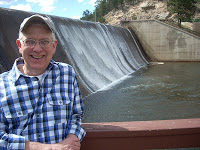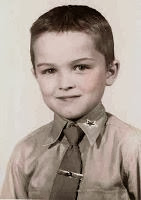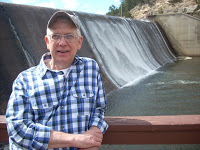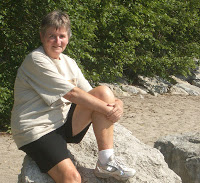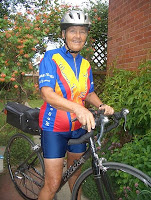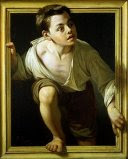explorations I really enjoyed. They usually took place in the stacks at the
public library, at the piano when facing a new score, or at home or office when
fulfilling a project for school or work.
for years, but things have changed so much that these days I most enjoy messing
around with words in an exploration of rhythm, contrast, and other aspects of
storytelling.
are mostly projects of mind and imagination. That’s been quite enough for me
although I do like to go to the same places by differing routes, say take the
scenic lane, stop by and see something I’ve always missed, or approach a
similar project in a slightly different manner. So today I’m reading something
again related to my childhood and continuing fascination with Native American
cultures but this time in poetic form. My interest in a peyote fan at the
Denver Art Museum served as the starting point, but the verse tells of my
childhood imaginings.
worked magic, at least for the boy
back of his hand,
world of freedom
he had read,
the life
tracks of his mind.
festooned with portraits
and feather
his world of flight,
barely
family.
worked his feathers
bustle, and fan,
dream
dressed up in style
belonging.
for a dance
footwork of fancy,
presence of
and spirit
of love and desire.
three minutes or less
stomp;
the life he could feel.
he pranced,
moccasins that
ceremony and smoke.
bells resounding
at it again.’
beads bounced
people, the dream
breechclout and leggings.
fan.
2012
lives in Denver and spends his time writing, painting, and socializing. In
general he keeps busy with groups of writers and artists. Following thirty-two
years in church work and fifteen in a therapeutic massage practice, he now
focuses on creating beauty. He volunteers at The Center leading the SAGE
program “Telling Your Story.”
